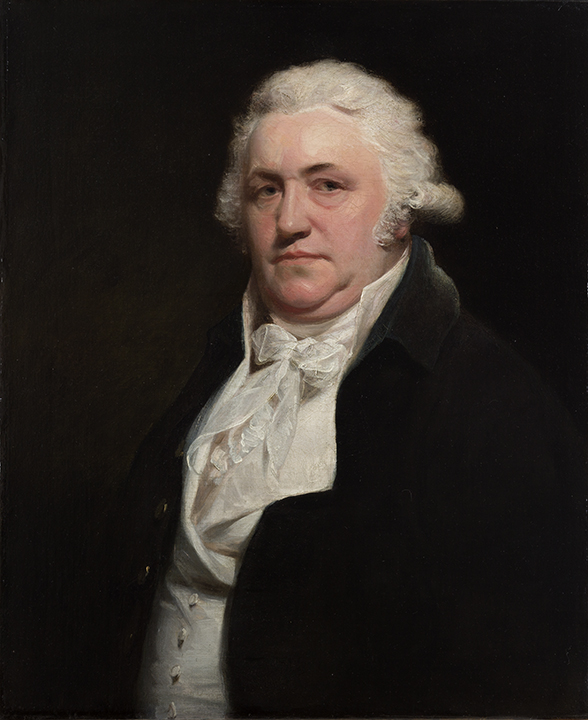
William Beechey (English, 1753–1839), Portrait of Sir Thomas Littledale of Rotterdam (1744–1809), before 1797, oil on canvas, 30 ¼ x 25 in., University Fund purchase, 67.10.1.
Lately, I have been spending a lot of time working on the upcoming re:mancipation exhibition, which opens in February. When you visit the exhibition, you will see a number of familiar artworks that are typically displayed in the same permanent collection gallery as Thomas Ball’s Emancipation Group. Hopefully, you will view these works in a new light after seeing re:mancipation.
One of these works is the portrait of Sir Thomas Littledale, which has been in the Chazen’s collection since 1967. Like most of the other portrait subjects in the gallery, Littledale benefited from slavery. Littledale was born into a merchant family in Whitehaven, an English port city with strong ties to the American colonies. Many of his relatives were slave traders and involved in the West Indies trade.
Littledale established a successful merchant house in Rotterdam, the Netherlands. He was particularly prominent in the tobacco trade, importing tobacco from Virginia and Maryland where it was cultivated on plantations by enslaved laborers.
—Janine Yorimoto Boldt, Associate Curator of American Art